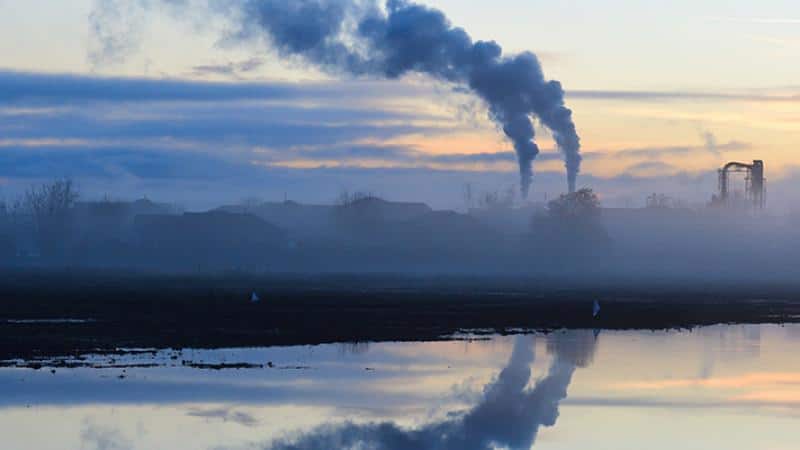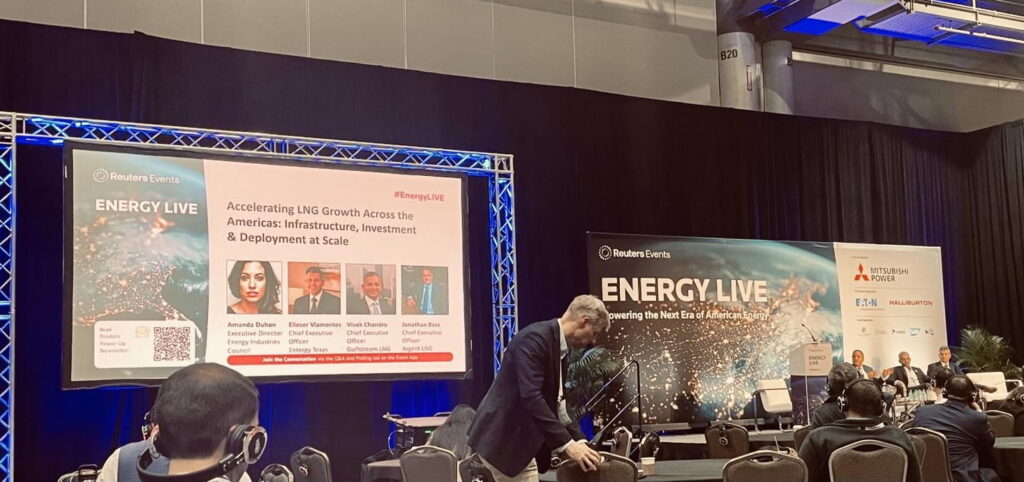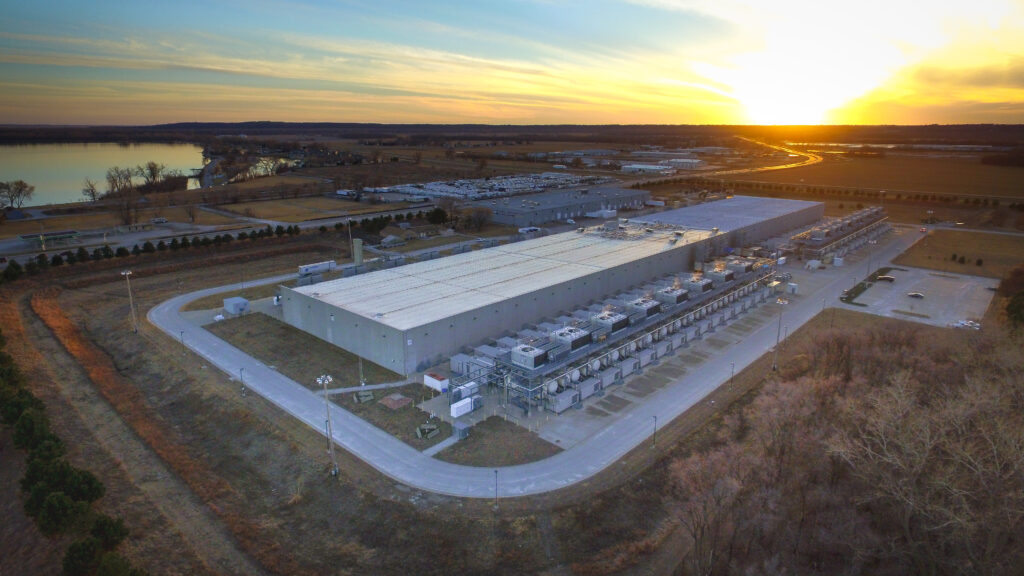UPDATE (11/2/2022): On November 1, NW Natural withdrew its application for the Eugene hydrogen project “in order to conduct additional stakeholder outreach,” citing “questions and concerns” raised by community members. It stated that it may potentially resubmit the application after that outreach.
A coalition of environmental and social justice organizations have filed a petition with state regulators to halt a hydrogen project by Oregon’s largest gas utility, alleging that the project poses health, safety, and environmental dangers to residents already living with polluting industries. The hydrogen project is also viewed by critics as a costly exercise in greenwashing that offers little climate benefit and is calculated to slow down momentum towards building electrification.
NW Natural, a gas utility that serves roughly 2.5 million customers in Oregon and Washington, has proposed building a hydrogen pilot project in the city of Eugene. The company aims to use renewable energy and water to create hydrogen, and then blend it into NW Natural’s gas supply. The utility will send that blend through its existing gas infrastructure into customers’ homes, with the aim of reducing greenhouse gas emissions. The blend would use 5 to 10 percent hydrogen, with the remainder made up of conventional methane gas.
When burned, hydrogen does not emit carbon dioxide,* and NW Natural says that the pilot project will help it work towards complying with Oregon’s Climate Protection Program, which requires gas utilities to slash greenhouse gas emissions by 50 percent by 2035 (NW Natural is suing to block the program). The utility also says that its pilot project in Eugene will help it scale up hydrogen blending statewide in the years ahead.
Hydrogen comes from various sources. This method of deriving it from water using renewable energy — known as “green hydrogen” — is the most climate-friendly way to make the fuel, but also requires significant amounts of renewable energy.
But a coalition of groups — Beyond Toxics, NAACP Eugene-Springfield, Oregon Physicians for Social Responsibility, 350 Eugene, and Sierra Club — filed a petition to intervene, asking the Public Utilities Commission to reject the project.
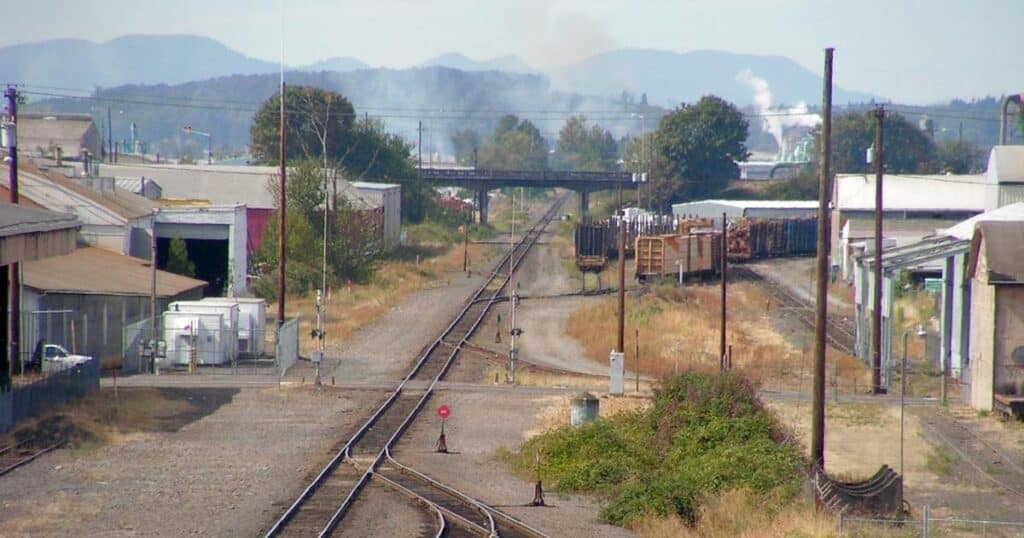
They cite a long list of problems with hydrogen blending, starting with the fact that it is an extremely expensive way to try to cut greenhouse gas emissions. As the Oregon Capital Chronicle reported, the $10 million project will only eliminate 200 metric tons of carbon dioxide, or 0.003 percent of NW Natural’s annual emissions.
“The costs of producing the hydrogen are far greater than the costs of electrifying homes and powering them with emissions-free solar and wind energy,” the Oregon Capital Chronicle said, adding that each ton of emissions reduced by using hydrogen for residential use would be three times more expensive than sucking carbon directly from the atmosphere, which is itself an extremely expensive form of reducing carbon emissions.
NW Natural is asking regulators to bake those costs into the rates its customers pay, amounting to an estimated 0.2 percent increase. That may seem minor, but the risk from a ratepayer standpoint is that the hydrogen pilot project, while small, is a precursor to a much larger campaign to blend hydrogen with methane gas that will result in further rate increases in the years ahead.
“NW Natural is trying to pull the wool over the eyes of our community and our elected officials with false solutions like this greenwashing hydrogen pilot,” Dylan Plummer, senior campaign representative for the Sierra Club, told DeSmog. “This $9.8 million project is costly and ineffective. It is clear that electrification of our homes and buildings is the fastest, most equitable means to lower emissions and protect the health and safety of Eugene residents.”
What’s more, this proposed 0.2 percent increase comes on top of three much larger rate hikes NW Natural is seeking, which could saddle customers with tens of millions of dollars to cover the cost of rising gas prices, executive bonuses, higher shareholder returns, and even lobbying and misleading marketing campaigns. All told, the multiple rate hikes NW Natural is hoping to impose on customers would hike bills by a combined 42 percent since October 2021. The Public Utilities Commission will decide on many of these charges later this month.
Hydrogen Blending Raises Environmental Justice Concerns
Concerns about the hydrogen project go beyond the cost.
NW Natural is proposing to build its hydrogen project, and send its hydrogen-blended gas, into the homes of people living in the Bethel neighborhood of West Eugene, which is already home to toxic industries.
“This area is in the heart of our industrial sector. It’s surrounded by heavy industry, kind of like a doughnut,” Lisa Arkin, executive director of Beyond Toxics, a community-based environmental justice organization, told DeSmog. Residents are marooned by an industrial corridor of dozens of companies, many connected to the wood products industry, that emit a long list of toxic pollutants.
“We have everything from wood preservation creosote manufacturers and chemical companies, to manufacturing laminate plywood, sawmills, and a biomass plant,” Arkin said.
As of 2019, approximately 684,159 pounds of toxic chemicals were released into West Eugene, accounting for 96 percent of the entire city’s toxic releases. Life expectancy in parts of West Eugene is a staggering 17.7 years lower than other wealthier parts of the city. And state data shows that the rates of lung cancer and Hodgkin’s lymphoma were slightly higher in West Eugene compared to the rest of the state. More than 90 percent of the Bethel neighborhood’s residents are low-income.
“Environmental injustices, including climate change, have a disproportionate impact on communities of color and low-income communities. The Bethel neighborhood in West Eugene is no different, being a working class community, with a higher percentage of communities of color compared to the rest of the city,” Jerrel Brown, environmental climate justice organizer with NAACP Eugene-Springfield, told DeSmog. “It is also already overburdened by current and legacy pollution from industrial facilities and factories. Moving forward with this pilot project will only worsen pollution and solidify this area as a sacrifice zone where community members’ health and safety is at risk.”
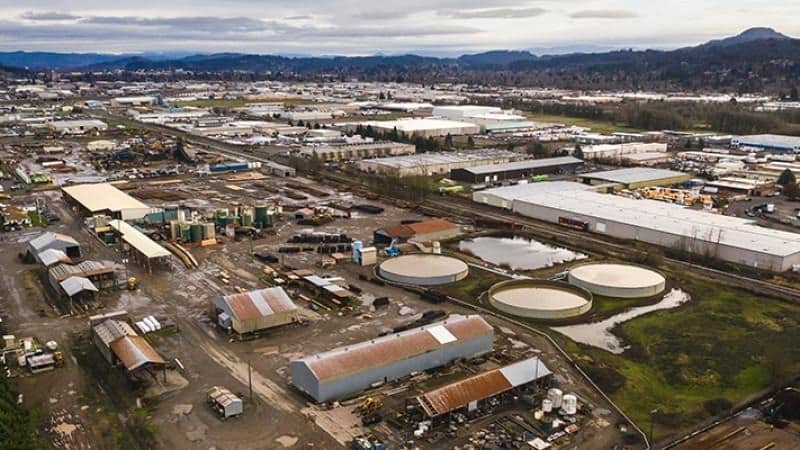
There are several concerns that community organizations have regarding the plan to send hydrogen into people’s homes. First, hydrogen presents a host of safety concerns. Hydrogen can ignite more easily than gas and can make some metals more brittle, which may increase the risk of explosions. One study puts the risk of explosion as four times higher compared to conventional methane gas.
Gas already contributes to indoor air pollution, but adding in hydrogen would potentially make the problem worse. Blending hydrogen into the gas mix would result in higher nitrogen oxide (NOx) pollution. NOx pollution contributes to and exacerbates respiratory ailments, such as childhood asthma. This adds to environmental justice concerns, since asthma rates in the Bethel neighborhood are nearly twice as high as other neighborhoods.
“As a physician, I’m deeply concerned about the health and safety risks associated with burning a hydrogen-methane blend in our homes — particularly for vulnerable populations and communities who already face disproportionate health burdens due to air pollution and climate change,” Dr. Melanie Plaut, a member with Oregon Physicians for Social Responsibility, said in a statement.
It is also not clear that West Eugene residents have any way to decline participation in what is essentially a big experiment with hydrogen blending. “To our knowledge, there is no opt out option, which is just a huge concern,” Teryn Yazdani, a staff attorney with Beyond Toxics, told DeSmog.
NW Natural did not respond to questions from DeSmog.
It is not even clear that hydrogen blending serves the stated goal of the project — to make deep cuts to greenhouse gas emissions. “They are planning to blend hydrogen at about five percent. Five percent hydrogen and 95 percent methane,” Arkin said. “That’s such a minimal reduction in fossil fuels. For all those issues.”
Yazdani was quick to add that hydrogen has its place in a clean energy transition. Hydrogen can be used in difficult-to-decarbonize sectors, such as steel, cement, and fertilizer for agriculture. But hydrogen experts say that it should not be used for home heating, cooking, or electricity.
The coalition of groups opposing NW Natural’s foray into hydrogen blending see it as another example of the utility “greenwashing” a false climate solution in an effort to distract from the growing trend towards electrification, which would put gas-only utilities at risk.
“It seems honestly like they are trying to find a way to keep their skin in the game in the face of impending climate policies that are going to be mandating this massive decarbonization effort,” Yazdani said. “They are trying to keep natural gas and fossil fuels relevant.”
*CORRECTION (10/18/22): The original version of this article stated that when burned, hydrogen emits only water. That has been corrected.
Subscribe to our newsletter
Stay up to date with DeSmog news and alerts


